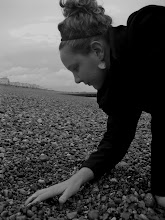I don't mean to be overly morbid or insensitive, but death is a reality I've come in far greater contact with while in Kenya. I've only ever had one close relative pass away, and I recognize that I am extremely blessed to know so little of this type of heartbreak.
But here in Africa, death is kind of all around you. There's been a donkey suffering from some sort of illness on the side of the road for a day and a half now. He alternates between lying on his side or on his back, as the Abba who owns him sits by and watches helplessly. I doubt if this 'ehel' will live through the night as he wilts in this heat and suffers through an unknown disease.
Even if the animals aren't getting sick, they're being slaughtered for food. I've already seen the skin and organs of a sheep sitting in a bucket next to one satisfied looking old man. I've also, for the first time in my life, seen my food alive before I've eaten it. I don't think it's melodramatic to say that for one split second, while staring at the mutton on my plate, I recognized the real connection between my existence and the existence, or non-existence, of other creatures here on earth.
One of our nightguards (a different guard from the one in our pictures) came around the other day and told us that his father was dying out in one of the surrounding towns. He's evidently an old man, Abaya Esymbaseley's father, that is, but a human life is never easy to lose. Because of the language barrier, there's no real way to ask about his father, or even how Abaya himself is feeling. There are just prayers for peace.
In a lot of ways, death seems more inevitable here than in the 'civilized world' (and I say that sarcastically because I do think that the Rendille have quite a few more things sorted out properly than we do.) Back home there's a hospital or ambulance just around the corner from your house, and even the most basic hospital equipment there is better by half than what is available in this desert. We have so many roadblocks set up for death and aging in America, that I think it's quite possible we think we've cheated it entirely. But get out into a place like Africa and you're confronted with... reality.
Lynne Swanepoel gave us an unbelievable statistic the other day; the average life span of a Rendille person is about 40-something, a number significantly lowered by the disproportionate number of infant deaths. Just a couple weeks ago, Alicia and I went over to Pastor Jamhuri's house for dinner. We met his very pregnant wife, had a wonderful visit with both of them, gave them our best wishes, and then two days later heard that her baby boy had died within minutes of birth. The pain is, I'm sure, just as accute as it would be back in the States, but is there an element of acceptance that is more easily obtainable in the Northern Kenya desert? I was shocked to hear that the baby hadn't survived, and felt slightly guilty for so flippantly wishing the mother blessings just days before. But how does the family cope? This is a tremendously dangerous place to live, so does an understanding of that translate into an easier transition from days characterized by numbing grief to days that are happy again?
I think you could live here a lifetime and still not know. And for me, an American who's only in town for one year, I doubt I'll ever be able to come to terms with 'The Problem of Pain' as it presents itself in Korr.
Subscribe to:
Post Comments (Atom)

What a beautiful post. It's so true that we in the west are so far removed from death - we rarely see it, and we often fear it. My heart breaks for Pasor Jamhuri and his family. I will be praying for them especially.
ReplyDelete